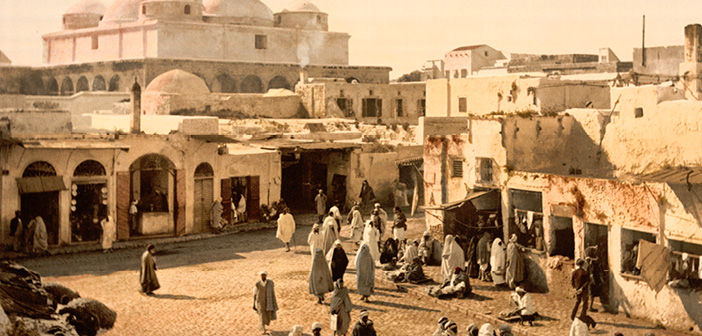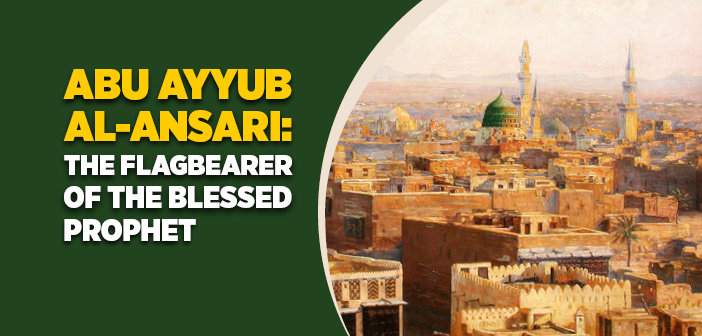How was the medina’s situation? Where is the medina? Who lived in medina?
The Medinan Era, when Islam and Muslims reigned sovereign, was a lively and vigorous period, replete with propitious activity, in which the universal principles of Islam gained an unshaKaable foothold; and the blood shed throughout a number of battles only served to reinforce that further.
At first, the situation in Medina was not entirely uncomplicated, despite the town having welcomed the incoming immigrants with an open heart. There were some ensuing dangers, aggravated primarily by the hypocrites and Jews, who owing to their dissident attitudes towards the rise of Islam, relentlessly sought to sow the seeds of enmity.
The hallmark of the hypocrites was their persistence with their idolater beliefs of old, despite appearing to have accepted Islam on the surface. Allah, glory unto Him, who would ultimately see his Light through, in the meantime, launched a menacing threat against them:
“And from among those who are round about you of the dwellers of the desert there are hypocrites, and from among the people of Medina (also); they are stubborn in hypocrisy; you do not know them; We know them; We will chastise them twice then shall they be turned back to a grievous chastisement.” (at-Tawba, 101)
So skilful were the hypocrites in their deceit that not even could the Blessed Prophet -upon him blessings and peace- sense their ways, gaining insight only through a related Divine Revelation, and that, when it came. The hypocrites were exceptionally wary of engaging in behavior that could incure the least disapproval and were hence acting as covertly as one could.
The Meccan idolaters, who had forced the Muslims to immigrate, were meanwhile keeping busy with fanning the flames of malice sparked by the hypocrites of Medina. Corresponding with the hypocrites on a regular basis, terrified by the thought that Islam might flourish, the Meccans were inciting their comrades-in-arms to raise their swords against the Muslims and wipe them of the face of Medina. These provocations were echoing a threatening tone; should the Medinans shy away from dealing with Muslims, then the Meccan idolaters were assuring them that they would come, backed by the entire tribes of the peninsula, and do the job themselves, but with one difference of detail that they would put to the sword indiscriminately the entire population of Medina, Muslim and others alike. To show they were equal to the task, the idolaters even sent a mob to Medina, which looted their stock grazing in the outskirts of the town.
The situation had become delicate and danger was visible on the horizon. The Believers began to guard the streets at night, taking every preventative measure against a possible raid. On the end of sleepless nights was even the Blessed Prophet -upon him blessings and peace-. Small forces were being sent outside of Medina to keep an eye out over the town and not to get blind sighted in case of an attack.
On the other hand were the Jewish tribes, the archenemies of Believers, constantly on the prowl for the right moment to strike. Owing to their religious heritage, they had gotten themselves in the fiercest tug of war with the Muslims and were causing much headache. The first surah to be revealed in Medina, al-Baqara, had thus put great emphasis in inviting the Jews to Islam. Following a general invitation handed to out to entire humankind, the Chapter makes elaborate mention of the ‘Children of Israel’ between its 40th and 162nd ayah, heightening its reference, in particular, in the 123rd, which in effect makes nearly more than half the surah reserved to them. The Divine expressions alternate from addressing the Jews directly to providing a description of them in the third person; and by virtue of refuting their claims and reminding them of the blessings they had been bestowed with, they seek to rekindle the light of iman in the hearts of Jews.[1]
The Jewish poet Kaab ibn Ashraf had made a habit of satirizing the Blessed Prophet -upon him blessings and peace-, spurring Meccans against him, under the influence of which the poets of Quraysh would follow suit. Hassan ibn Thabit -Allah be well-pleased with him-, the greatest poet of the Ansar, thereupon asked the Noble Prophet’s -upon him blessings and peace- permission to retaliate. His permission was granted.[2]
Poetry, then, had the force of what the media has today. The Noble Messenger -upon him blessings and peace- had placed a pulpit inside the Masjid especially for Hassan ibn Thabit, who would voice his poetic satires in defense of the malignant words leveled at the Messenger of Allah -upon him blessings and peace- .
“As long as he defends the Messenger of Allah”, the Blessed Prophet -upon him blessings and peace- would say, “the Holy Spirit shall be with Hassan.” (Abu Dawud, Adab, 87/5015)
At the face of Jewish and idolater persistence in meting out torment to both the Blessed Prophet -upon him blessings and peace- and the Believers, the Almighty was urging His Beloved with patience and forgiveness. A day before the Battle of Badr, the Blessed Prophet -upon him blessings and peace-, astride a donkey with Usama ibn Zayd behind him, went to pay the ill Saad bin Ubada a visit. On the way, he came upon a group, sitting around, which also included Abdullah ibn Ubayy ibn Salul, who still had not professed his ‘outward’ acceptance of Islam; he was openly proclaiming his non-belief. Also seated alongside him were some Believers, including Abdullah ibn Rawaha, as well as Jews and idolaters. The donkey, on which the Prophet of Mercy -upon him blessings and peace- was astride with Ibn Zayd, whirled up some dust as it passed, reaching the seated group. Covering his nose with the tip of his shirt, Abdullah ibn Ubayy retorted:
“Don’t raise dust on us!”
Dismounting his ride, the Blessed Prophet -upon him blessings and peace- then greeted the crowd and reciting some Quran invited them to believe in Allah, glory unto Him.
“Why are you telling us these things?” Abdullah bin Ubayy retorted once again. “If the things you say are true, then leave us alone…go home and tell them to those who come to listen to you!”
“Much the contrary”, intervened Abdullah ibn Rawaha. “Visit our assemblies, Messenger of Allah, for we take much delight from hearing your words!”
This was followed by a heated, all-in dispute between the Muslims, idolaters and even Jews. They were on the brink of going at each others throats but the Blessed Prophet -upon him blessings and peace- managed to calm everybody down. Once things settled back to normal, the Blessed Prophet -upon him blessings and peace- mounted his ride and continued on his way, eventually arriving next to Saad ibn Ubada, telling him of the ordeal.
“Forgive them, Messenger of Allah; overlook their rudeness”, Saad ibn Ubada consoled. “I assure you by the One who has sent you with the Book that right before you arrived as the Messenger of Allah, these people were getting ready to declare Ibn Ubayy leader and crown him as they crown kings. But when Allah sent you to us with the True Religion, his dreams of becoming a king were shattered and that left him in distress…it was like he could not even breathe anymore. His grudge is probably from that.”
The Blessed Prophet -upon him blessings and peace- thus forgave Abdullah ibn Ubayy over his antics. The below ayah was revealed in relation:
“Assuredly ye will be tried in your property and in your persons, and ye will hear much wrong from those who were given the Scripture before you, and from the idolaters. But if ye persevere and ward off (evil), then that is of the steadfast heart of things.” (Al Imran, 186) Prior to the revealing of the ayah that have permission to take up arms, both the Blessed Prophet -upon him blessings and peace- and the Companions would forgive, as they had been commanded, the offensive and malignant behavior that came from the way of idolaters and Jews.[3]
[1] See, Draz, an-Nabau’l-Azîm, p. 178.
[2] Bukhari, Manâqıb, 16; Muslim, Fadailu’s-Sahaba, 156-157.
[3] Bukhari, Tafsîr, 3/15.
Source: Osman Nuri Topbaş, The Prophet Muhammed Mustafa the Elect II, Erkam Publications





